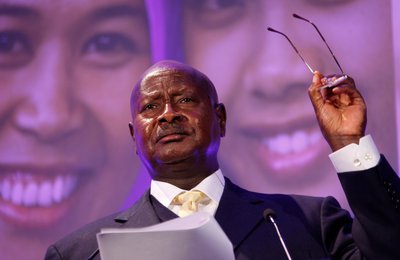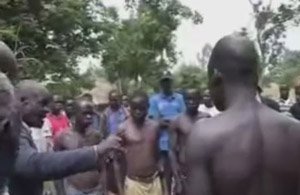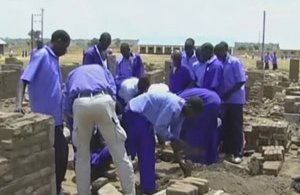Civil society organisations working for peace, justice and reconciliation in Uganda have welcomed the trial of former Lord’s Resistance Army (LRA) Colonel, Thomas Kwoyelo for atrocities he allegedly committed during the over two decade LRA insurgency in northern Uganda.
In March 2009, LRA Col Thomas Kwoyelo was captured in the Democratic Republic of Congo (DRC). He was flown to Uganda for treatment under detention. Kwoyelo's trial officially kicked-off on Monday 11 July 2011 in Gulu, the district most affected by the conflict in northern Uganda. A visibly frightened Kwoyelo was arraigned in a fully packed Gulu High Court session, before a full bench - a panel of three judges of the International Crimes Division (ICD), formerly the War Crimes Division.

The trial day began with an official opening of the High Court session, a guard of honour and a full parade which attracted a wide range of stakeholders, including victims, local communities, civil society, government representatives and international participants. Kwoyelo pleaded not-guilty to all the 12 counts and 53 alternative charges read to him, one after the other, by the Hon. Justice Dan Akiki Kiiza, Head of the ICD.
Many of the victims and the affected population within northern Uganda expressed mixed feelings about the trial. Some celebrated the day as a leap in their search for justice, sustainable peace and reconciliation, reconstruction and rehabilitation. However, many affected by LRA attacks agonised that the trial alone would not fulfil their sense of justice. They called for more robust measures to be taken to complement the prosecutions of perpetrators. For instance, Hon. Jane Akwero Odwong, a gender justice activist, challenged the court to adopt measures to address sexual and gender based violence meted out during the conflict.
Yet the LRA continues to attack civilians and displace populations within neighbouring countries such as the DRC and parts of the Central African Republic and Sudan. Many believe that although Kwoyelo is a footnote in the ranks of key perpetrators who bear the greatest responsibility for their suffering, his trial is nonetheless considered long overdue – justice delayed is justice denied. It is the hope of many people that Kwoyelo will be given a fair hearing to demonstrate this country’s commitment to due process and the rule of law.

Many victims also expect a full implementation of the entire agreement on accountability and reconciliation reached during the peace talks in Juba. These would including the implementation of traditional justice mechanisms such as Mato Oput, reparations, truth seeking and accountability by both state and non-state actors who committed atrocities during the insurgency. During a stakeholders meeting held at the Gulu High Court just before the trial, participants questioned the courts’ commitment to comprehensive justice, accountability by state actors such as the Uganda Peoples Defence Forces (UPDF) - which is alleged to have committed atrocities - issues of reparation, witness protection, gender justice and traditional justice processes for sustainable peace and the search for national unity.
The head of the ICD Hon. Justice Dan Akiki Kiiza promised the courts impartiality and commitment to hear all cases brought to court by the prosecutor. He urged the government and the stakeholders present to explore the implementation of the other mechanisms for comprehensive solutions. He said, however, that the judiciary is not responsible for investigating and bringing charges against different actors, including the UPDF – that is the mandate of the Directorate of Public Prosecution (DPP).












